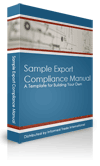Effects of the New DCS Rules
Effects of the New Rules
The BIS and State Department intend for these DCS revisions to have significant positive effects on exporters, and on export regulation generally. Specifically, their hope is that the final rule revisions will help minimize the compliance burden for exporters, and the complexity of the export control process overall. Recipient parties and re-exporters are also benefitted by the revisions, as DCS information is consolidated in the commercial invoice and inconsistencies in mixed shipments are eliminated. Re-exporters can easily fashion another DCS for the shipment using the commercial invoice DCS as a reference.
These final rules have been put into effect as part of a larger executive-branch initiative to consolidate the export control process and create a unified export control list and licensing agency. Ultimately, the intent is to create one agency for export control and one set of regulations to govern such exports.
Under Executive Order 13563, the BIS and the State Department must continue to review the impact of the final rules on exporters’ licensing burden. They will collect data on a periodic basis and conduct an assessment of the effects of the rules on exporters. Elements of the rule may be modified, repealed, and otherwise reviewed and revised in the future (after a public comments period, of course).
—
As of November 15, 2016, the world of defense article export compliance will change forever as DCS requirements under EAR and ITAR are harmonized as per the new rules. These changes are intended to reduce the regulatory burden for exporters and help ensure that the export of defense articles remains well-controlled.
Posted on September 1st, 2016 by admin
Filed under: EAR, ITAR

